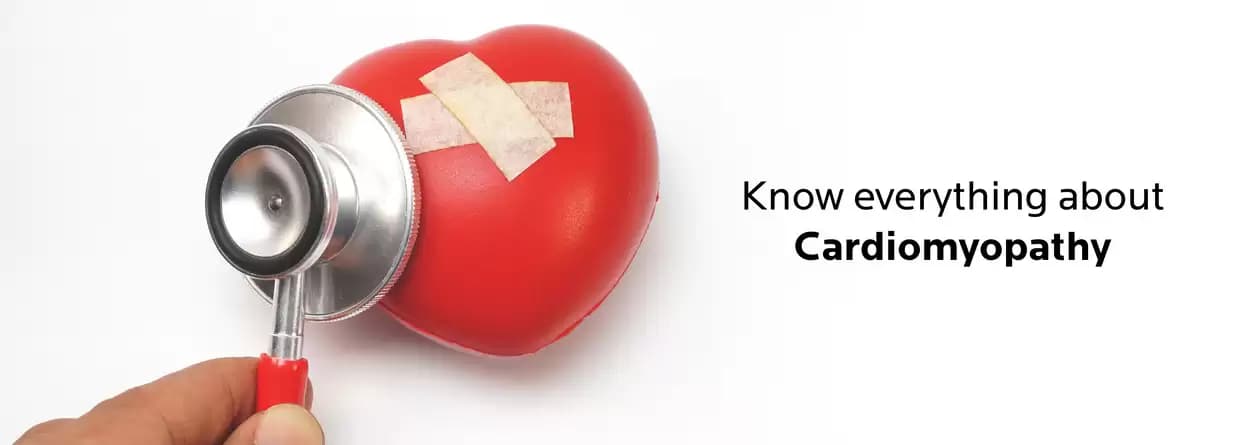
Cardiomyopathy is a heart condition affecting the myocardium (heart muscle). The condition leads to making your heart muscle stiff, and thickened, and causes scar tissue. As a consequence, your heart loses the ability to pump blood to the rest of the body as needed.
Are you experiencing heart palpitations or shortness of breath? If yes, then it can indicate a heart-related condition known as cardiomyopathy. This condition can affect your heart muscle severely. It makes the heart incapable of pumping sufficient blood throughout your body efficiently. Cardiomyopathy if left untreated can get worse over time so make sure to get the treatment as it can slow down the progression and enhance your quality of life.
In this blog, we will take a closer look at the condition and include everything that you must know about cardiomyopathy. The write-up is only for general informational purposes and doesn’t construe the doctor’s consultation.
Cardiomyopathy is a heart condition affecting the myocardium (heart muscle). The condition leads to making your heart muscle stiff, and thickened, and causes scar tissue. As a consequence, your heart loses the ability to pump blood to the rest of the body as needed. Over time, the heart can deteriorate causing heart failure. On-time treatment can help, but in some cases, there might be a need for heart transplantation.
There are different types of cardiomyopathy:
First, know that all types of cardiomyopathy are similar and in every case, the heart loses the efficiency to pump blood to the organs of the body. As a result, there are symptoms you can observe and they are:
Yes, there are many factors affecting individuals of all ages. The risk factors of cardiomyopathy are:
Your doctor or cardiologist will follow certain constituents into your diagnosis. It includes:
The doctor will also include some diagnostic tests and procedures:
The doctor might also recommend diagnostic procedures to confirm cardiomyopathy, primarily if you are planning for surgery. These procedures are cardiac catheterization, coronary angiography, and myocardial biopsy.
The objective of treatment is to help the heart function efficiently and prevent more damage. The cardiomyopathy treatment differs on how damaged your heart is because of cardiomyopathy and the causing symptoms. Some individuals don’t need treatment until the system appears. You must know that cardiomyopathy cannot be cured or reversed, but you can manage it with the following treatment options.
Cardiomyopathy is a life-threatening condition and it is crucial to be aware of the symptoms. This is primarily important for people with conditions like coronary artery disease and other heart problems. Cardiomyopathy can cause heart failure or stroke if left untreated. So, if you are diagnosed with this condition, make sure to visit a cardiologist immediately. The doctor will recommend treatment that’s right for you and with regular medications, you can prevent the worsening of this condition.
How does cardiomyopathy affect the body?
As the condition deteriorates, you can experience heart issues like heart failure, heart valve problems comprising heart valve disease, and arrhythmia.
Can I live a normal life with cardiomyopathy?
Yes, you can certainly live a normal life with cardiomyopathy if you follow the doctor’s instructions diligently. Make lifestyle changes as guided and if surgery is required, don’t delay it.
Similar Cardiac Sciences Blogs
Book Your Appointment TODAY
© 2024 RBH Jaipur. All Rights Reserved.